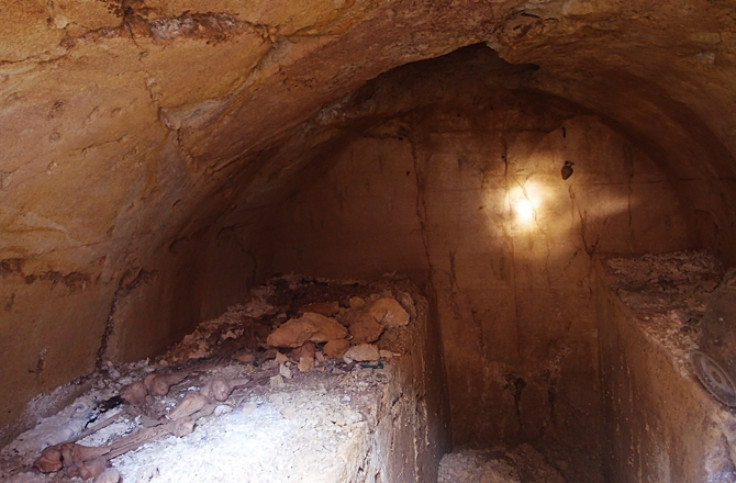Mistaken Identity And Gender Bias? An Etruscan Warrior Prince Is Actually A Princess

Archaeologists exploring in the Tuscany region of Italy recently discovered an intact 2,600-year-old tomb, at first believed to hold the remains of a warrior prince. But it seems the researchers may have had a bit of gender bias.
Alessandro Mandolesi, from the University of Turin, and his team of researchers found the tomb in the Etruscan Necropolis of Tarquinia, a UNESCO world heritage site that features elaborate wall paintings and rare examples of Etruscan architecture, reports LiveScience.com. Because of the tomb's close proximity to the queen’s tomb, it was believed to be that of a prince of Tarquinia, an ancient Etruscan city dating 610-600 BCE. A spear lying beside the skeleton inside the burial chamber seemed to indicate gender, but there were plenty of clues that suggested the presumed man was a female. The skeleton had brooches that fastened a cloak, and a jewelry box and gold jewelry were found within the chamber. A second incinerated skeleton was found and believed to be the warrior prince’s wife.
But after analyzing the skeleton, measuring hardness, structure and other functions, the researchers discovered the presumed prince was a princess and the incinerated skeleton was that of a male.
Author Judith Weingarten says the case of mistaken identity may derive from gender bias. Commenting on her blog and then elaborating to LiveScience, Weingarten says a lot of research is based on "preconceptions" of what is found in graves, assigning a gender to particular objects. Weingarten translates quotes from Mandolesi that suggest the placement of the spear was a gesture between husband and wife, a “symbol of the union between the two deceased,” but she believes his conclusion is slightly off. Based on the understanding of Etruscan culture and society, Weingarten says, the princess could have been a warrior and a leader in her own right. In fact, she argues that Tarquin wives wielded a lot of influence and were instrumental in making the men they chose into powerful princes.
© Copyright IBTimes 2024. All rights reserved.












